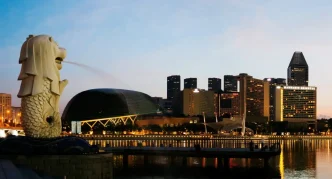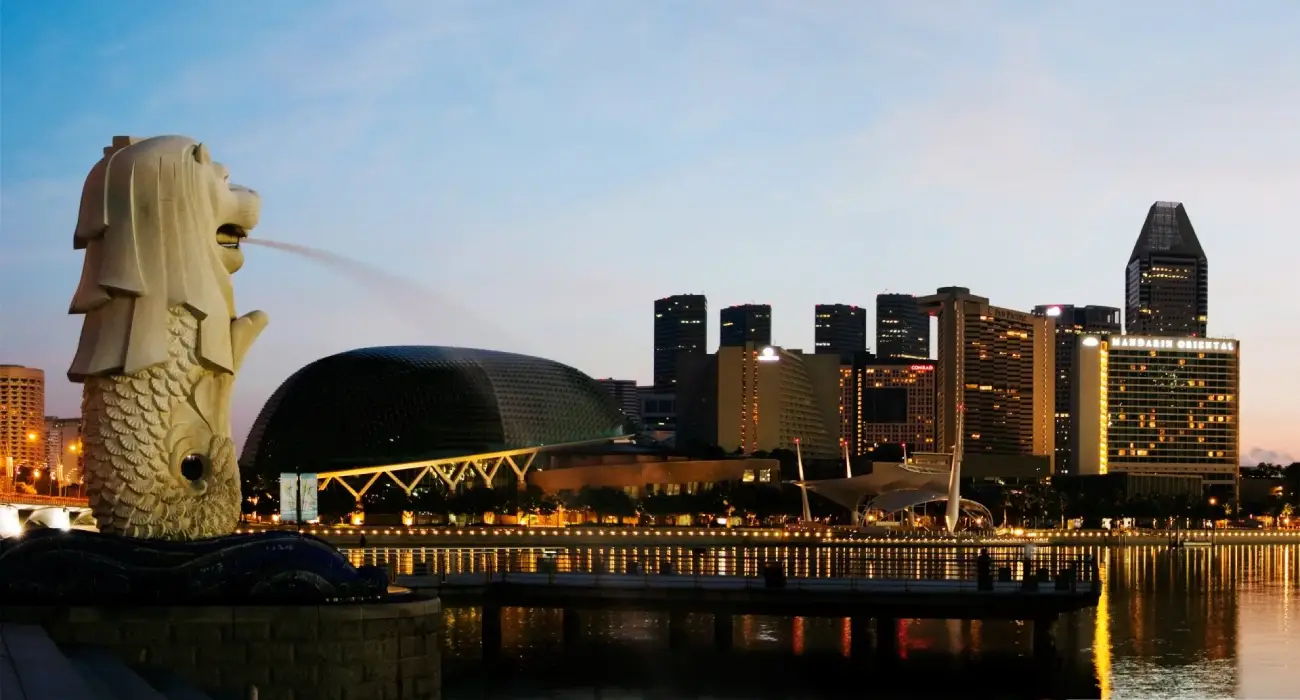Singapore and Indonesia have reaffirmed their commitment to deepening economic cooperation during a high-level bilateral meeting, signaling resilience in their partnership amid a backdrop of global political and economic uncertainty. The 15th Singapore-Indonesia Six Bilateral Economic Working Groups Ministerial Meeting (6WG MM), held on June 15, 2025, in Singapore, underscored the strategic importance of their relationship, with agreements signed to boost sustainability and innovation across key sectors.
Key Agreements and Economic Milestones
Co-chaired by Singapore’s Deputy Prime Minister and Minister for Trade and Industry Gan Kim Yong and Indonesia’s Coordinating Minister for Economic Affairs Airlangga Hartarto, the meeting focused on advancing cooperation in six critical areas: the Batam, Bintan, and Karimun (BBK) region and other special economic zones, investments, manpower, transport, agribusiness, and tourism. The discussions built on years of steady growth in bilateral trade, which reached US$57.6 billion (S$73.8 billion) in 2024, positioning both nations as vital trading partners.
A significant highlight of the meeting was the signing of two commercial agreements. The first, an affirmation letter between Singapore’s Sembcorp Development and Indonesia’s PT Batamraya Sukses Perkasa, cemented their collaboration on low-carbon industrial parks in the BBK region. Their joint project, the 100-hectare Tembesi Innovation District, aims to attract sustainability-focused tenants and is projected to generate 20,000 jobs upon full development. The second agreement, a memorandum of understanding between the Singapore Semiconductor Industry Association and the Indonesian Chamber of Commerce and Industry, seeks to expand market access for semiconductor and electronics companies in both countries, fostering innovation in a high-growth sector.
These agreements reflect a shared vision for sustainable economic progress. As Mr. Gan noted during the meeting, improving business and regulatory environments is essential to attract investments and enable collaboration. “We must create the conditions for our people and businesses to seize emerging opportunities” he said, emphasizing the need for adaptability in a rapidly changing global landscape. Mr. Airlangga echoed this sentiment, highlighting the growing investor interest in the BBK region as a testament to the success of bilateral efforts.
A Strategic Partnership in Numbers
The economic relationship between Singapore and Indonesia is underpinned by robust figures. Singapore has been Indonesia’s top source of foreign direct investment (FDI) since 2014, with FDI flows surpassing US$20.1 billion in 2024. This investment has fueled development in key Indonesian regions, particularly in special economic zones like BBK, which serve as hubs for industrial and technological advancement. The steady rise in bilateral trade further illustrates the mutual benefits of this partnership, with both countries leveraging their complementary strengths—Singapore’s role as a global financial and logistics hub, and Indonesia’s vast market and resource base.
Beyond trade and investment, the ministers discussed initiatives to advance human capital development, recognizing that a skilled workforce is critical to sustaining economic growth. Progress in this area includes training programs and exchanges that aim to equip workers with the skills needed for emerging industries, particularly in technology and sustainability. Such efforts are vital as both nations navigate global challenges, including supply chain disruptions and the urgent need for climate-friendly policies.
Sustainability and Connectivity at the Forefront
The focus on sustainability was evident not only in the industrial park agreement but also in recent engagements between the two countries. Just days before the 6WG MM, on June 13, 2025, Singapore’s Minister-in-charge of Energy and Science & Technology Tan See Leng visited Jakarta, where three deals on clean energy and sustainable development were signed. These agreements signal a shared commitment to addressing climate change through innovation, with potential ripple effects across Southeast Asia, a region highly vulnerable to environmental challenges.
Connectivity, both physical and economic, also emerged as a priority. The leaders welcomed improvements in air connectivity between Singapore and Indonesia, a move expected to boost trade, investment, and people-to-people exchanges. Enhanced flight routes and streamlined business links are set to facilitate tourism and commerce, further cementing ties between the two nations. In the agribusiness sector, discussions centered on agri-tech collaborations and new trading opportunities, which could strengthen food security—a pressing concern amid global uncertainties—while benefiting Indonesian importers and Singaporean exporters.
Navigating a Complex Global Landscape
The timing of this bilateral engagement is significant. As global politics grow increasingly unpredictable, with trade tensions and geopolitical rivalries shaping international relations, regional partnerships like that between Singapore and Indonesia offer a stabilizing force. Both countries are key players in the Association of Southeast Asian Nations (ASEAN), a bloc that has often been tested by external pressures. By deepening economic ties, Singapore and Indonesia are not only safeguarding their own interests but also contributing to regional resilience.
Analysts suggest that the focus on sustainability and innovation could position the partnership as a model for other ASEAN nations. The emphasis on low-carbon industrial development, for instance, aligns with broader regional goals to transition to greener economies. However, challenges remain. Regulatory hurdles, differing national priorities, and external economic shocks could complicate the implementation of these ambitious plans. If unaddressed, such issues may slow progress in critical areas like the BBK region, where investor confidence hinges on policy consistency and infrastructure development.
Moreover, the upcoming state visit by Indonesian President Prabowo Subianto to Singapore on June 16, 2025—his first since taking office—adds a political dimension to the economic discussions. While the agenda for the visit remains undisclosed, it is widely expected to build on the momentum of the 6WG MM, potentially addressing broader strategic issues such as maritime cooperation and regional security. Observers note that President Prabowo’s engagement with Singaporean leaders could set the tone for Indonesia’s foreign policy in the coming years, particularly in balancing relations with major powers.
Regional Implications and Future Prospects
The outcomes of the 6WG MM extend beyond bilateral benefits, carrying implications for ASEAN’s economic integration. Singapore and Indonesia, as two of the region’s largest economies, play a pivotal role in shaping the bloc’s direction. Their collaboration in areas like semiconductors and agri-tech could spur innovation across Southeast Asia, while their focus on connectivity may inspire similar initiatives elsewhere in the region. Yet, the success of these efforts will depend on sustained political will and the ability to adapt to evolving global conditions.
Public sentiment in both countries appears largely positive, with business communities welcoming the new agreements. On social media platforms like X, users have highlighted the potential for job creation and economic growth, particularly in Indonesia’s BBK region. However, some voices caution against over-optimism, pointing to past challenges in translating high-level commitments into tangible results. Ensuring transparency and accountability in project implementation will be key to maintaining public trust.
Looking ahead, the partnership between Singapore and Indonesia stands at a critical juncture. With global headwinds intensifying, from inflationary pressures to geopolitical uncertainties, the ability to deliver on shared goals will be a litmus test for their cooperation. The agreements signed at the 6WG MM, coupled with ongoing dialogues at the highest levels, offer a promising foundation. Yet, as both nations chart their course, questions linger about how they will balance national interests with regional aspirations in an increasingly complex world.
As these initiatives unfold, the eyes of Southeast Asia—and indeed the global community—will be on Singapore and Indonesia, watching whether this economic alliance can serve as a beacon of stability and progress in turbulent times.
















